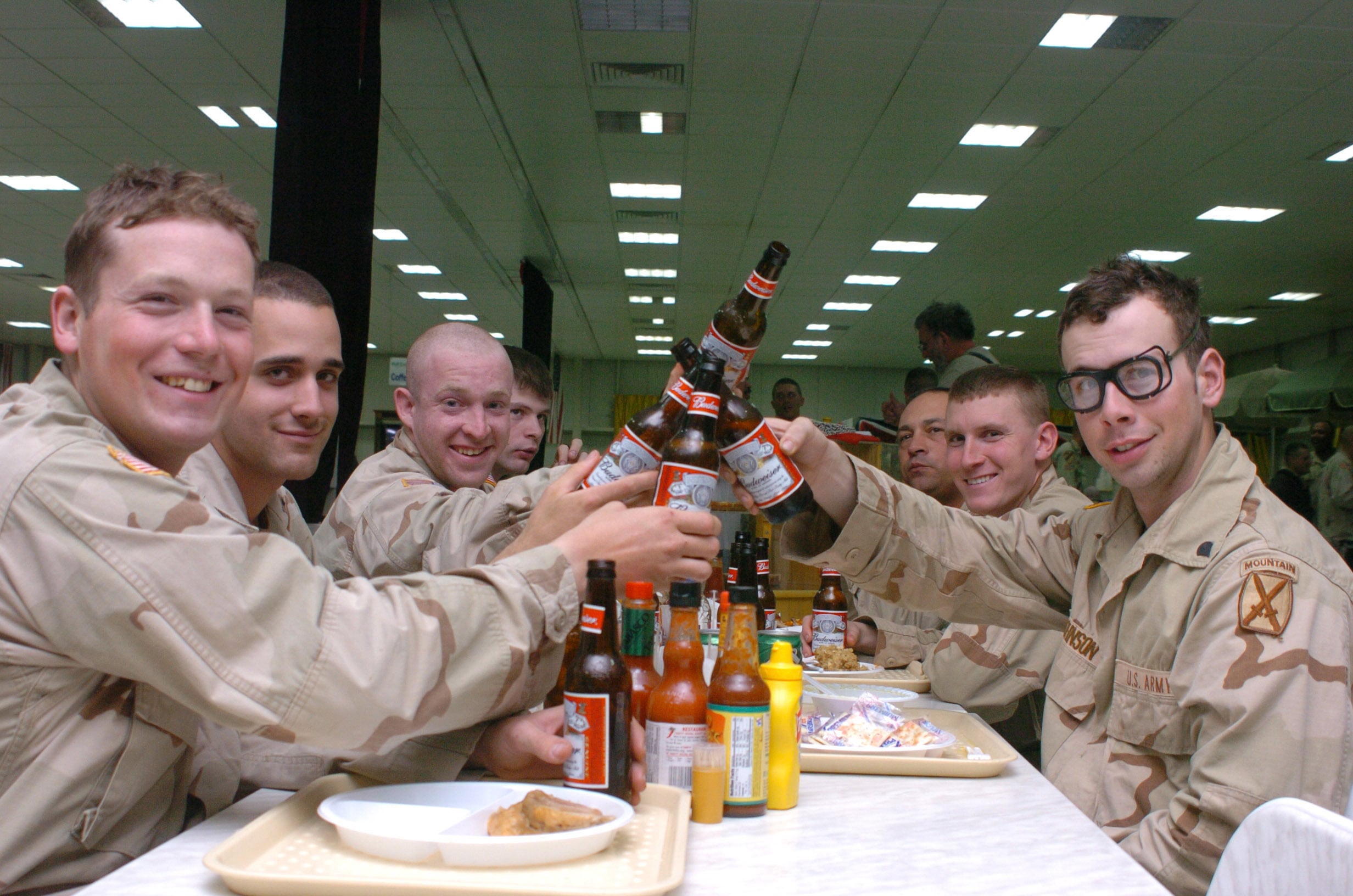There’s nothing like cracking open a cold beer after a long day at work. But soldiers who reside in the barracks at some assignments have been limited from doing just that by Army policies.
In June, the Sergeant Major of the Army took to Reddit to ask questions about improving culture, including one that hinted at the possibility of removing barriers for soldiers to drink alcohol in the barracks.
The Army hasn’t made any changes yet, but Sgt. Maj. of the Army Michael A. Grinston told Task & Purpose that the branch’s approach to alcohol is under consideration.
“The intent, first right off the bat, was [to] ask ourselves ‘do we have the right culture that we want in the Army for alcohol?’” Grinston asked. “I think that was a fair question, and I think the majority of the individuals said ‘yes, we need to take this on and do something about it.’”
Drinking regulation enforcement has largely been left up to individual commands, a service spokesman told Army Times. However, according to enlisted leaders, limitations don’t appear to prevent excessive drinking or foster a culture of mindful drinking.
“Except for prohibition of alcohol consumption in Initial Entry Training barracks, there is no Army policy regarding how much alcohol a Soldier can possess in the barracks; however, some units have established policies locally,” Army spokesman Sgt. 1st Class Anthony Hewitt told Army Times.
For example, at Fort Bliss, Command Policy Letter #11 — Barracks Policy says that only soldiers older than 21 in assigned barracks rooms are allowed to keep one 750ml bottle of wine or liquor, with ABVs above 10%. That’s a standard fifth. Beer is limited to 144 ounces, or a standard 12-pack. Wine with an ABV lower than 10% is limited to about five bottles.
Command Sgt. Maj. Raymond Quitugua Jr. of the Army Chemical Corps at Fort Leavenworth said during a three-day conference with the Army’s top enlisted leaders the first week of July that he thinks giving soldiers more agency in the barracks will allow them to develop better drinking habits.
“Soldiers are saying, ‘Because I know I can only keep this amount of alcohol in my barracks, when I’m at the bar I will drink as much as I can as fast as I can because I can’t continue to drink at my barracks because you just don’t want me to have enough in there,’” he said.
Among the services, soldiers had the highest number of hospitalizations for alcohol-related issues between 2009 and 2018, according to a 2020 Army release.
“The truth is that many Soldiers don’t follow those rules which results in risky drinking patterns and occasions,” said Dr. Cheryl Owen, the regional manager for Substance Use Disorders Clinical Care at Regional Health Command Europe. “A subset of those folks won’t be able to or can’t follow those rules even if they try. They are the ones who, despite their best intentions, just can’t drink responsibly and the best choice for them is to not drink.”
Sarah Sicard is a Senior Editor with Military Times. She previously served as the Digitial Editor of Military Times and the Army Times Editor. Other work can be found at National Defense Magazine, Task & Purpose, and Defense News.





